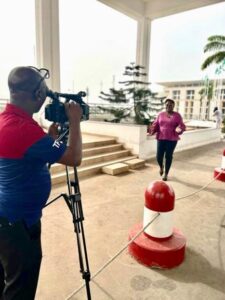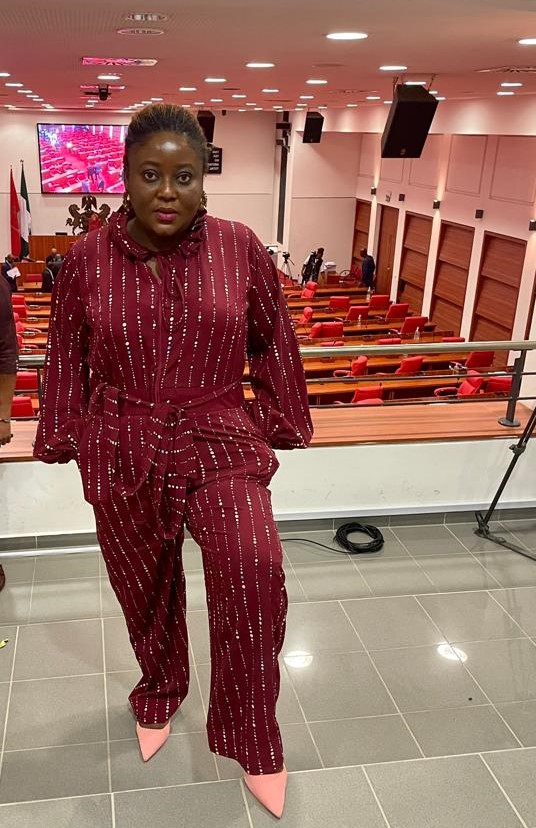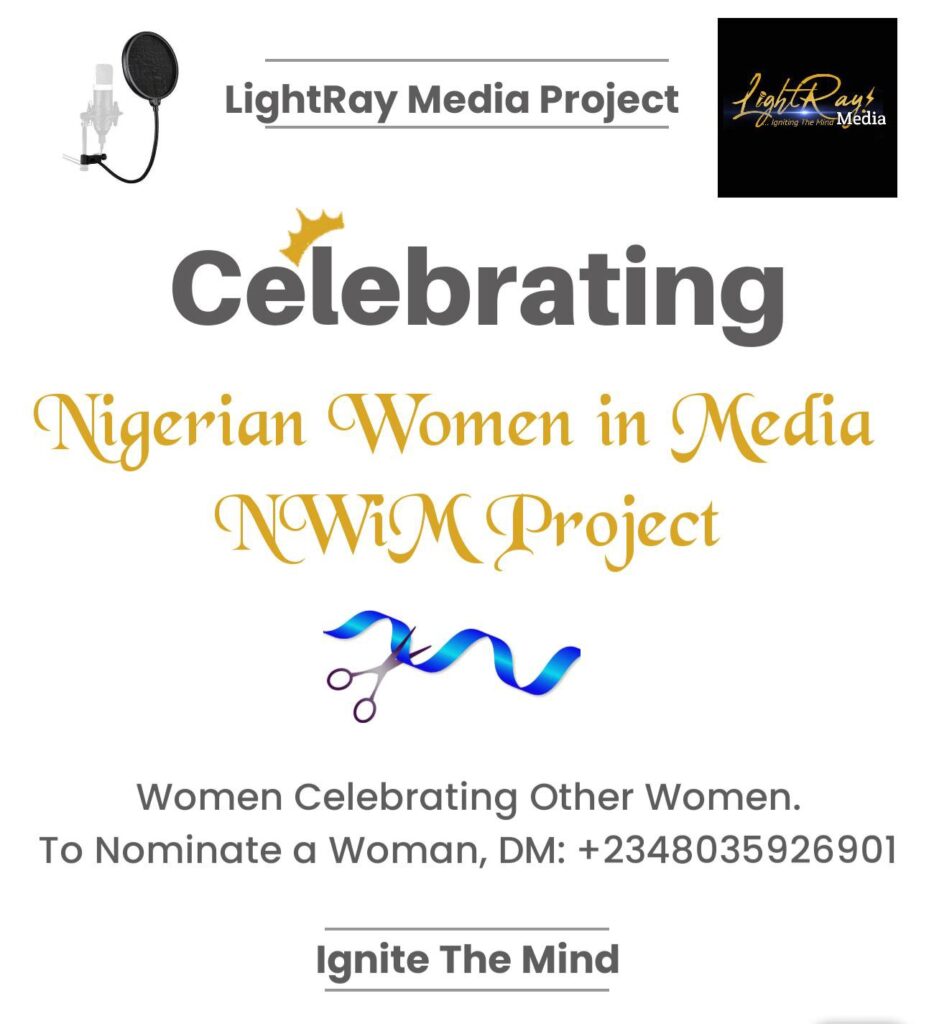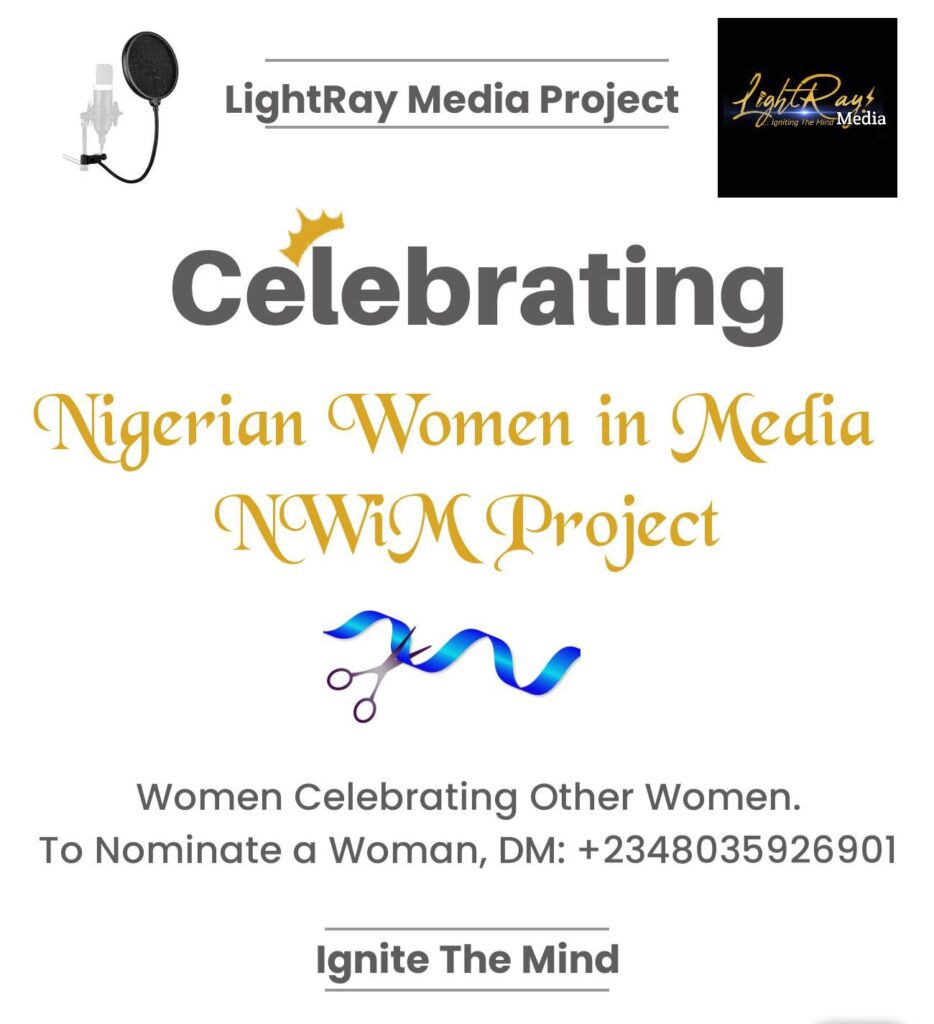My Media Story: Prioritise the Mental Health of Journalists in Nigeria – Linda Nwabuwa Akhigbe
The Nigeria National Assembly, similar to both the USA Parliamentary and the UK House of Lords is the number one legislative body in the country. Many Nigerians watch their activities daily from the Red and Green Chambers while at home, at work, or on the move on their mobile phones.
Linda Akhigbe, is a frontline journalist with Channels TV, who for the past ten years, has covered the National Assembly as the Senate/Political Correspondent. She also doubles as a news presenter and heads the presentation department in the station’s office in Abuja. With her responsibility covering the NASS, she produces and presents The GAVEL, a weekly current affairs programme focusing on the Federal Legislature, which many Nigerians keen about the goings-on in the NASS would not miss.
She has insights and great depth of knowledge about the NASS that is far reaching. As our Special Guest in this Edition of the #NWiM Nigerian Women in Media Project by LightRay Media, she gives us an Exclusive insight about her journey in the media and the Nigerian Media landscape.
Within your ten years covering the NASS, what were the most striking events, notorious incidents, and citizen-driven laws that left the most impression on you, and why?
The National Assembly can be a dramatic place, and it’s no wonder as it is a mini Nigeria with lawmakers from different ethnicities, religions, and widely different beliefs and values. There have been several striking events in the last few years. I can not forget the inauguration of the 8th Assembly in 2015 when Senators Bukola Saraki and Ike Ekweremadu emerged dramatically as Senate and Deputy Senate President against the wishes of the ruling APC. There was also the day in the 8th Assembly when the DSS barricaded the gates of the National Assembly preventing lawmakers and staff from getting access to the Assembly ostensibly to prevent the Saraki led Senate from sitting after he and several lawmakers defected to the opposition PDP. The snatching of the mace by some yet to be named people during the plenary is yet another striking event. I have witnessed the security operatives tear-gassing National Assembly with the Senate and House of Representatives in session.
The persistent failure of majority of gender bills from the 7th till the 9th Assembly has been striking and quite sad. However, in terms of citizens driven legislations I would say the electoral act 2022, the prevention of sexual harassment bill in tertiary institutions, the constitution amendments to devolve powers from the center, the recently passed constitution amendment bill to guarantee independent candidacy in elections left huge impressions on me. I must say that there are several more citizen driven legislations that are commendable.
Let’s make a quick journey back in time. At what point, in your early days, did you know journalism was going to give you the kind of career you wanted?
Very interesting question. In retrospect, it appears early on the signs pointed me to a career in the media. I remember presenting a radio program on Radio Nigeria Lagos when I was nine-years-old. The Head Mistress of the primary school I attended identified my talent in speaking and recommended me to be a part of the radio program. So I would say that was my first stint in broadcasting. But it was after my NYSC when I got a job in a radio station that was when I realized that journalism is my passion.
At what point did you feel your career was no longer just a job you showed up to?
That was a few years into my career when I started reporting on human rights abuses and stories around gender based violence. I wanted to tell the stories of these survivors and in the process hope that they get Justice. So it was not just a job but a mission or calling.
Did you experience any struggles in the early stages of your career, and how did you overcome them?
I think my biggest struggle early on was trying to build capacity in writing and reporting well. I also struggled with shyness and non assertiveness. I guess I thought I was not good enough. I am my harshest critic and still question my ability to date. I don’t think I have completely overcome these challenges but I have been getting the needed trainings, coaching sessions, and courses as I can, studying the works of people I admire in this field and building my confidence up more.

Linda Akhigbe: Media Owners should create an environment for journalists to thrive, where their ideas can be explored or at least examined. Eliminate office politics as much as possible, offer mentorship to young journalists, be mindful of their mental health, offer training opportunities, pay journalists well, eliminate sexual harassment and abuse in newsrooms, schedule rest for journalists.
Any barriers you can think of that may be holding you back from hitting the career target you’ve set for yourself?
The barriers are mostly internal and self inflicted. Apathy and sometimes fear to fly.
How do you plan to overcome them? Why is it important for you to overcome them?
I must say that despite the barriers I have mentioned, I have reached a certain level of fulfillment in my career and I am proud of that. Do I need to aim higher? Most definitely. My watchword is to stretch myself beyond my comfort zone and just do more excellent work.
What are some of the stories or projects you’ve done that was the most impacful in the course of your career?
I did a documentary in partnership with MSF on the trafficking of Women and girls to Italy via the Mediterranean Sea. I got to speak with some of the girls rescued by MSF in Sicily and tell their stories. It was eye opening and extremely impactful. Also, stories I did on gender-based-violence have been very impactful.
What is the one project you will like to embark on?
There is a dearth of political documentaries in Nigeria and this is an area which I am already making inroads into. So I intend to produce more political documentaries detailing major phenomena in Nigeria’s political space.
What training opportunities have you attended, which you applied on the job?
Trainings on creative writing, mobile journalism and data journalism have been key to the work I do.
What suggestions will you give media owners or heads of media business to help boost morale, effectiveness, and reduce toxicity in the workplace?
Create an environment for journalists to thrive, where their ideas can be explored or at least examined. Eliminate office politics as much as possible, offer mentorship to young journalists, be mindful of their mental health, offer training opportunities, pay journalists well, eliminate sexual harassment and abuse in newsrooms, schedule rest for journalists.
If you were to reimagine your career, what would you do differently, starting today?
I would be more daring and break out of the boxes I put myself in.

Linda Akhigbe: Women in Media should look for opportunities and collaborate with other journalists on stories or the business side of the media. Find mentors if you can or look for people whose career you admire and study them.

How and what can women in media begin to do differently and better to hold their own space within the media industry?
Build your capacity, hone your craft, be like a sponge and soak up knowledge. Do excellent work and learn to work smarter. Speak up, be assertive. Get off the popular and easy paths and venture into not so popular horizons. Trust your voice and realize you have something to say, your voice matters and you deserve to be here. Journalism is not for shrinking violets so be bold and courageous. Look for opportunities and collaborate with other journalists on stories or the business side of the media. Find mentors if you can or look for people whose career you admire and study them.
What would you say is the most outstanding thing you do while on the job?
I show up every day, I come correct and try to do good work. My mind is open to learning and re-learning. These are my biggest accomplishments and what I most proud off.
How do you balance your personal life, work, and family expectations? Which aspects give you the most challenges, and how were you able to overcome them?
I don’t know if I actually think balance in totality is achievable. I feel you cannot give your complete attention to all facets of your life at the same time and somethings will suffer at some point. Regardless, I am a believer of creating a good support system. I also make sure I try to get as much rest as possible. Also, having honest conversations frequently with those you love is important.
Tell us something about the media industry you would like to see change for the better? And why is this change important?
I want to see a media industry that pay its workers well, prioritize welfare, and the mental health of employees. Equally as important, is an industry that truly holds government accountable.
In the next 3-5 years, where do you see yourself?
To become a fully established documentary filmmaker.
So, paint a picture for us how you unwind, relax, and recharge your batteries.i
I love to travel and explore new cities, I find solo travel very relaxing and it really recharges my batteries so to speak. I also love to visit art galleries and museums. I de-stress by reading books mostly fiction. Historical romance and fantasy are my favorite genres. I also have a tradition of going to the cinema to watch a movie on a Monday and it sort of relaxes me and sets the tone for the week. And, yes, I love watching some of my favorite shows at home, too. I try to go swimming as often as I can as I find it to be really soothing and calming.
Written by ERU.






Comments